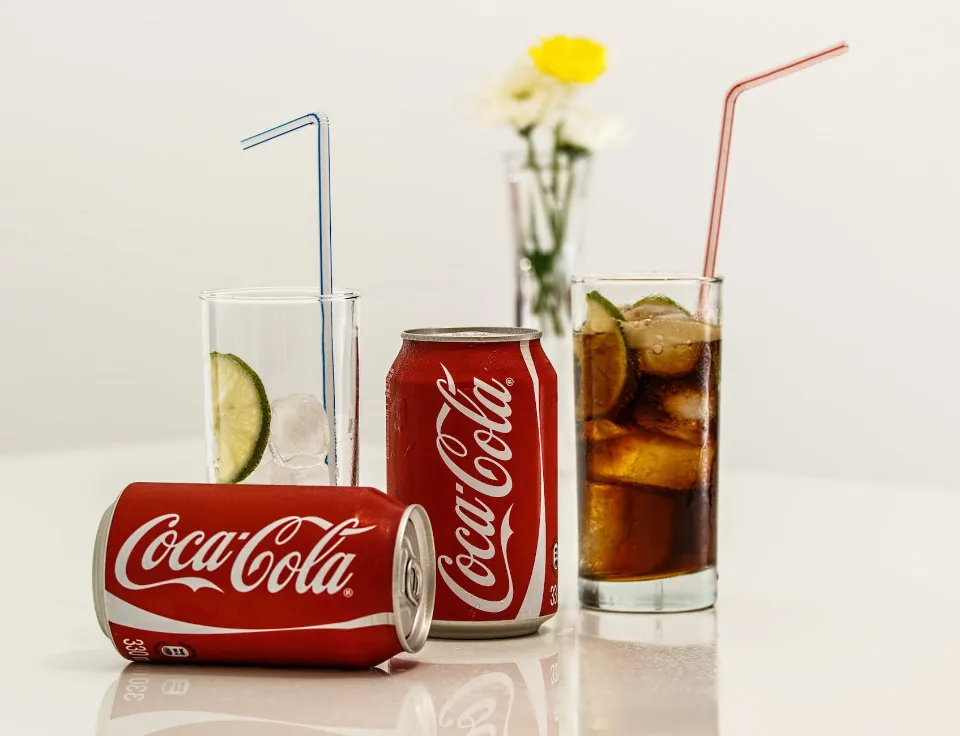The New York Times reported on Saturday that President Donald Trump consumes more than a dozen Cokes each day. You might believe that drinking sugar-free soda is healthier for you than drinking regular coke, which is loaded with sugar. After all, experts have been warning about the dangers of consuming too much sugar for years, as it has been connected to obesity and a number of other health issues.
But studies showing a link between the artificial sweeteners used in coke and a higher risk of stroke and dementia were published earlier this year in the American Heart Association journal Stroke.
You can read about the connection between cocaine and Alzheimer’s disease in the article below, along with some of the recommendations we’ll make for you. Scroll down!
Read more: What Are The 7 Stages Of Alzheimer’s: Understand Your Old Parents Better – Elder VIP
Does Coke Cause Alzheimer’s: Studies Have Confirmed
Two recent studies link Coca-Cola consumption to poor brain health and early Alzheimer’s disease symptoms. The studies raise the possibility that consuming cokes—sugar-sweetened or diet—may hasten the aging of the brain and raise the risk of developing Alzheimer’s disease or other types of dementia, even though they cannot establish cause and effect.

Coke is Associated With Memory Decay
Over 4,000 middle-aged adults were the subject of one study published in the journal Alzheimer’s and Dementia. They participated in memory tests, brain scans, and thorough questionnaires about their diet and beverage intake.
Researchers from Boston University and other institutions discovered that people’s performance on memory tests generally declined in proportion to how much sugary soda they consumed on a regular basis. Those who drank the most sugary drinks also tended to have more shrinkage of the brain. Reduced brain volume has been linked in other studies to a higher risk of Alzheimer’s disease years later.
In comparison to people who didn’t consume sugary cokes or other beverages with added sugar, those who drank one or two sugary cokes per day experienced brain shrinkage that was equivalent to one to two years of aging. They also tended to do worse on memory tests, scoring about the same as someone five or six years older. Around 150 calories or up to 10 teaspoons of sugar are found in a typical can of sugar-sweetened coke or a comparable sweetened beverage.
On memory tests, those who regularly drank more than two sugary beverages per day performed even worse, scoring at a level that was comparable to someone who was more than a decade older.
The researchers took into account elements like diabetes and high blood pressure, both of which have been connected to an increased risk of Alzheimer’s. However, even after adjusting for these risk factors, increased sugar intake was linked to accelerated brain aging and brain shrinkage.
Coke is Associated With Stroke
And switching to diet sodas might not be the solution for those worried about their sugar intake. In the second study, published in the American Heart Association journal Stroke, it was discovered that consuming diet soda also increased the risk of dementia and stroke.
That study examined information from the Framingham Heart Study, which monitored a sizable number of Framingham, Massachusetts, residents., over many years. Researchers found that among nearly 1,500 people over 60, those who drank at least one diet beverage every day had a nearly three times greater risk of developing Alzheimer’s or other forms of dementia over the following 10 years compared to those who drank diet beverages less frequently. Some of the researchers were also involved in the first study.
Why Coke is Harmful to Alzheimer’s?
Unlike short-term memory loss, long-term memory loss is much more troublesome and progresses in a different way. Even though cocaine does not directly harm long-term memory, it can have serious long-term effects that can cause irreversible brain damage and long-term memory loss.
All of it may be caused by clots in the vascular system of the body, which includes the veins and arteries. Contrary to the norm, clot formation is accelerated more quickly in cocaine users than in healthy individuals. As they accumulate in a vein, these clots have the potential to spread to other areas of the body. Heart attacks and other serious complications like strokes and pulmonary embolisms can be brought on by clots.
Clots that lodge themselves in the brain can lead to strokes. The brain’s various regions start to die over time because clots prevent oxygen from reaching them. In particular, memory loss could result from these dead brain cells, which would be severe and permanent. This is why associations between cocaine use and memory loss have led to many conclusions. In addition to memory loss, using cocaine frequently carries a number of other serious risks.
What and How Does Alzheimer’s Drink?
- If you can, give the cup to someone with Alzheimer’s or place it in a visible location.
- Throughout the day, provide a variety of drinks, such as tea, coffee, hot and cold milky beverages, fruit juice or smoothies, soup, squash, and water.
- Foods with a high liquid content, such as gravy, ice cream, milk jellies, and yogurt, should be encouraged to be consumed by people with Alzheimer’s.
- Encourage Alzheimer’s to drink water all day long. Eight to ten glasses or 10 to 13 cups per day, or about 1.5 to 2 liters, is the recommended amount.
- Use a clear glass so Alzheimer’s can see what’s inside, or try a vibrantly colored cup to catch attention in place of it.
- Every time Alzheimer’s eats something, keep a drink nearby.
- Make sure the cup or glass is appropriate by checking that it isn’t too heavy or has a tricky shape.
Summary
Researchers have discovered that older adults who regularly consume artificially sweetened beverages, such as coke, are roughly three times more likely to experience a stroke or develop Alzheimer’s disease within 10 years, which paints a concerning picture for regular coke drinkers.
Should you quit drinking coke then? Even though the data is still inconclusive, it’s a good idea to limit these beverages—as long as you don’t replace them with anything detrimental, for instance. As a substitute, go for water and other drinks that are good for your brain and lower your risk of Alzheimer’s, like coffee or green tea.
FAQs
Does Soda Make You Forgetful?
The Framingham Heart Study (FHS) has shown through its data that people who more frequently consume sugary beverages such as sodas and fruit juices are more likely to have poorer memory, smaller overall brain volumes and smaller hippocampal volumes–an area of the brain important for memory.
Are Alcoholics Less Likely to Get Alzheimer’s?
An individual’s risk of AD is 300% higher over time if they drink too much alcohol. The risk of developing all forms of dementia is increased, according to a 2019 review, by excessive alcohol consumption and alcohol use disorders.



